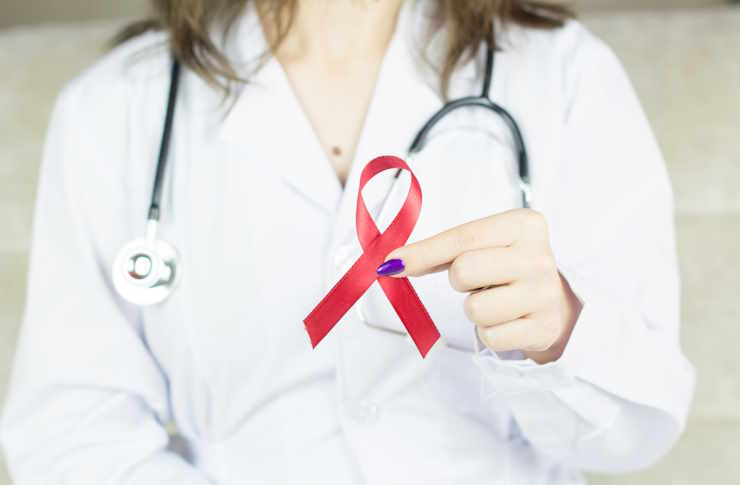Understanding Stomach Cancer: Causes, Symptoms, Diagnosis
Stomach cancer is a complex condition that many seek to understand better. While causes and symptoms can vary, learning about common signs and diagnostic methods may help individuals stay informed. Discover what influences risk, how the disease is identified, and what people consider in this context. Learn more inside.

What are the primary causes of stomach cancer?
Stomach cancer develops when cells in the stomach grow and divide uncontrollably. While the exact causes are not fully understood, several factors can increase the risk of developing this cancer. One of the most significant risk factors is infection with Helicobacter pylori (H. pylori), a bacterium that can cause chronic inflammation in the stomach lining. Long-term inflammation can lead to changes in the stomach cells, potentially resulting in cancer.
Other risk factors include a diet high in smoked and salted foods, smoking, obesity, and a family history of stomach cancer. Certain medical conditions, such as pernicious anemia and chronic gastritis, may also increase the likelihood of developing stomach cancer. It’s important to note that having one or more risk factors doesn’t necessarily mean a person will develop stomach cancer, but it does increase their chances.
What are the common symptoms of stomach cancer?
Recognizing the symptoms of stomach cancer is crucial for early detection and treatment. Unfortunately, early-stage stomach cancer often doesn’t cause noticeable symptoms, which can make diagnosis challenging. As the cancer progresses, however, several signs may become apparent.
Common symptoms of stomach cancer include:
-
Persistent abdominal pain or discomfort
-
Feeling full after eating small amounts of food
-
Difficulty swallowing
-
Nausea and vomiting
-
Unexplained weight loss
-
Loss of appetite
-
Bloody stools or vomit
-
Fatigue or weakness
It’s important to note that these symptoms can also be caused by other, less serious conditions. However, if you experience persistent or worsening symptoms, it’s crucial to consult a healthcare professional for proper evaluation.
How is stomach cancer diagnosed?
Diagnosing stomach cancer typically involves a combination of medical history review, physical examination, and various diagnostic tests. The process often begins when a patient reports persistent gastrointestinal symptoms to their doctor.
The diagnostic journey may include:
-
Medical history and physical examination: The doctor will ask about symptoms, risk factors, and family history, and perform a physical exam to check for any abnormalities in the abdomen.
-
Upper endoscopy: This procedure allows the doctor to visually examine the inside of the stomach using a thin, flexible tube with a camera attached. During the endoscopy, the doctor may also take small tissue samples (biopsies) for further analysis.
-
Imaging tests: Various imaging techniques, such as CT scans, MRI, or PET scans, may be used to determine the extent of the cancer and whether it has spread to other parts of the body.
-
Blood tests: While there is no specific blood test for stomach cancer, certain tests can help assess overall health and detect potential complications.
-
Biopsy: Tissue samples collected during an endoscopy are examined under a microscope to confirm the presence of cancer cells and determine the type of stomach cancer.
What are the key risk factors for stomach cancer?
Understanding the risk factors for stomach cancer is essential for prevention and early detection. While some risk factors cannot be changed, others can be modified through lifestyle choices.
Key risk factors include:
-
Age: Stomach cancer is more common in people over 50.
-
Gender: Men are more likely to develop stomach cancer than women.
-
Ethnicity: In the United States, stomach cancer is more common in Hispanic Americans, African Americans, and Asian Americans.
-
Diet: A diet high in smoked, salted, or pickled foods and low in fruits and vegetables may increase risk.
-
H. pylori infection: Long-term infection with this bacterium significantly increases the risk of stomach cancer.
-
Smoking and alcohol consumption: Both can increase the risk of developing stomach cancer.
-
Family history: Having a first-degree relative with stomach cancer increases an individual’s risk.
-
Certain medical conditions: Conditions such as pernicious anemia, chronic gastritis, and gastroesophageal reflux disease (GERD) may increase risk.
What are the signs of gastric cancer to watch for?
While early-stage stomach cancer may not present obvious symptoms, there are certain signs that individuals should be aware of and report to their healthcare provider:
-
Indigestion or heartburn that doesn’t improve with treatment
-
Difficulty swallowing, which may worsen over time
-
Feeling bloated after meals, even when eating small amounts
-
Persistent nausea or vomiting, especially if blood is present
-
Unexplained weight loss or loss of appetite
-
Abdominal pain or discomfort, particularly in the upper abdomen
-
Feeling tired or weak, which may be due to anemia caused by bleeding in the stomach
-
Dark or tarry stools, which can indicate the presence of blood in the digestive tract
It’s important to remember that these signs can also be associated with other, less serious conditions. However, if you experience persistent or worsening symptoms, it’s crucial to seek medical attention for proper evaluation and diagnosis.
Understanding the causes, symptoms, and diagnostic methods for stomach cancer is an important step in promoting early detection and effective treatment. By being aware of risk factors and potential signs of the disease, individuals can take proactive steps to protect their health and seek timely medical care when needed. Remember, regular check-ups and open communication with healthcare providers are essential components of maintaining overall health and well-being.
This article is for informational purposes only and should not be considered medical advice. Please consult a qualified healthcare professional for personalized guidance and treatment.




